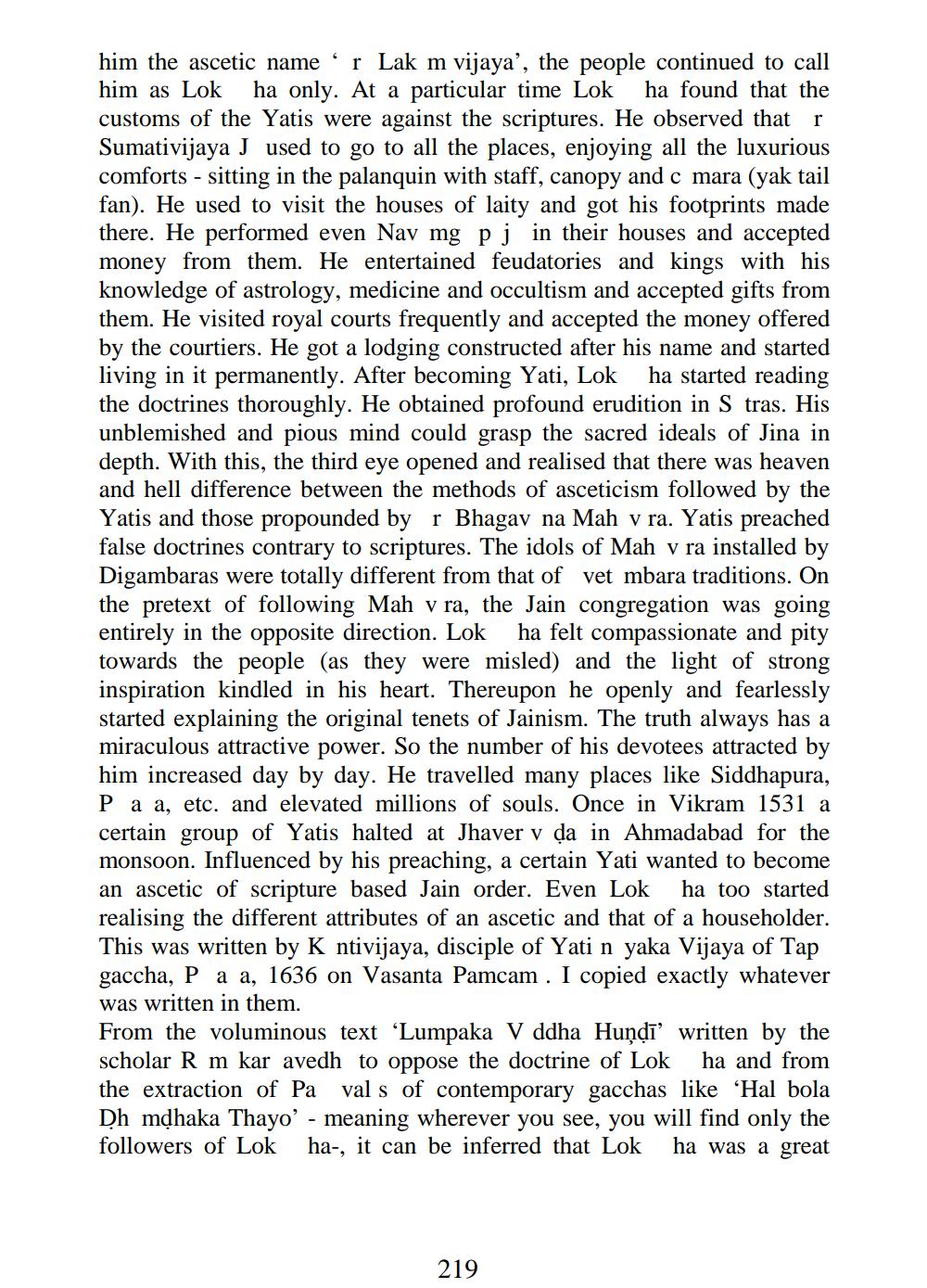________________
him the ascetic name' r Lak m vijaya', the people continued to call him as Lok ha only. At a particular time Lok ha found that the customs of the Yatis were against the scriptures. He observed that r Sumativijaya J used to go to all the places, enjoying all the luxurious comforts - sitting in the palanquin with staff, canopy and c mara (yak tail fan). He used to visit the houses of laity and got his footprints made there. He performed even Nav mg p j in their houses and accepted money from them. He entertained feudatories and kings with his knowledge of astrology, medicine and occultism and accepted gifts from them. He visited royal courts frequently and accepted the money offered by the courtiers. He got a lodging constructed after his name and started living in it permanently. After becoming Yati, Lok ha started reading the doctrines thoroughly. He obtained profound erudition in Stras. His unblemished and pious mind could grasp the sacred ideals of Jina in depth. With this, the third eye opened and realised that there was heaven and hell difference between the methods of asceticism followed by the Yatis and those propounded by r Bhagav na Mah v ra. Yatis preached false doctrines contrary to scriptures. The idols of Mah v ra installed by Digambaras were totally different from that of vet mbara traditions. On the pretext of following Mah v ra, the Jain congregation was going entirely in the opposite direction. Lok ha felt compassionate and pity towards the people as they were misled) and the light of strong inspiration kindled in his heart. Thereupon he openly and fe started explaining the original tenets of Jainism. The truth always has a miraculous attractive power. So the number of his devotees attracted by him increased day by day. He travelled many places like Siddhapura, Pa a, etc. and elevated millions of souls. Once in Vikram 1531 a certain group of Yatis halted at Jhaver v da in Ahmadabad for the monsoon. Influenced by his preaching, a certain Yati wanted to become an ascetic of scripture based Jain order. Even Lok ha too started realising the different attributes of an ascetic and that of a householder. This was written by K ntivijaya, disciple of Yati n yaka Vijaya of Tap gaccha, P a a, 1636 on Vasanta Pamcam . I copied exactly whatever was written in them. From the voluminous text ‘Lumpaka V ddha Huņdī' written by the scholar R m kar avedh to oppose the doctrine of Lok ha and from the extraction of Pa val s of contemporary gacchas like 'Hal bola Dh mdhaka Thayo’ - meaning wherever you see, you will find only the followers of Lok ha-, it can be inferred that Lok ha was a great
219




